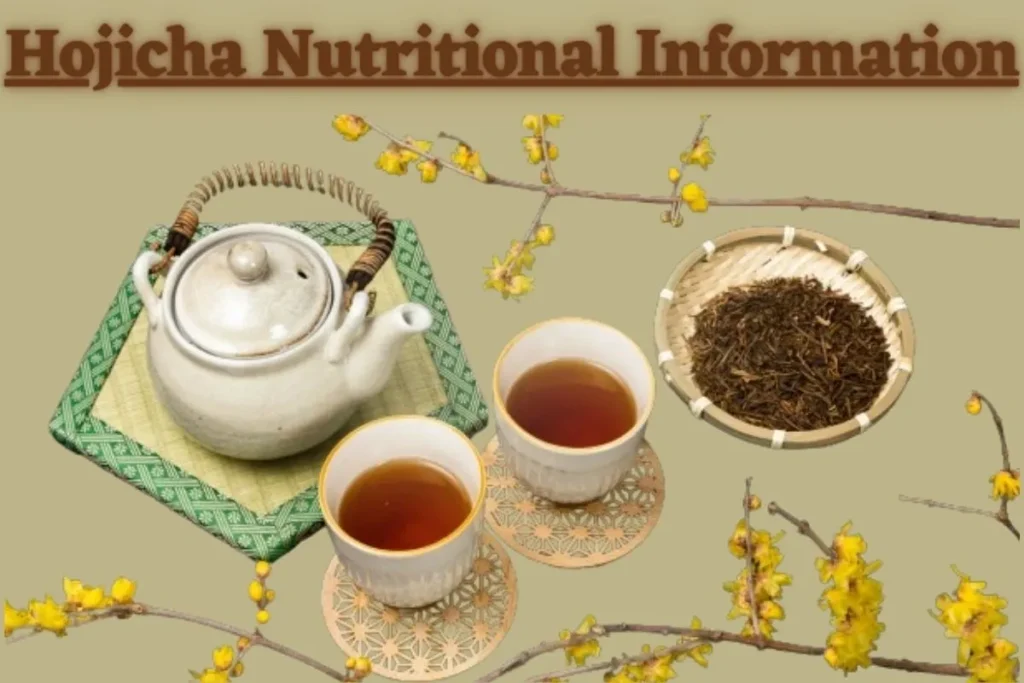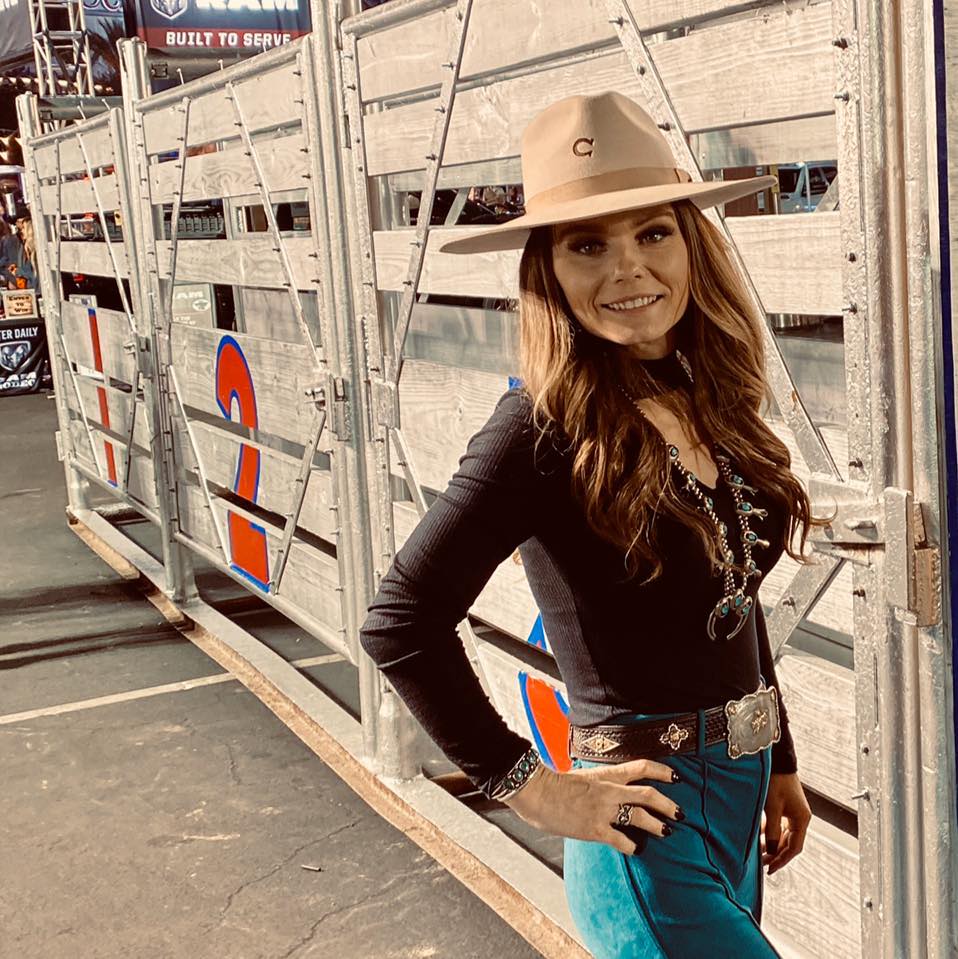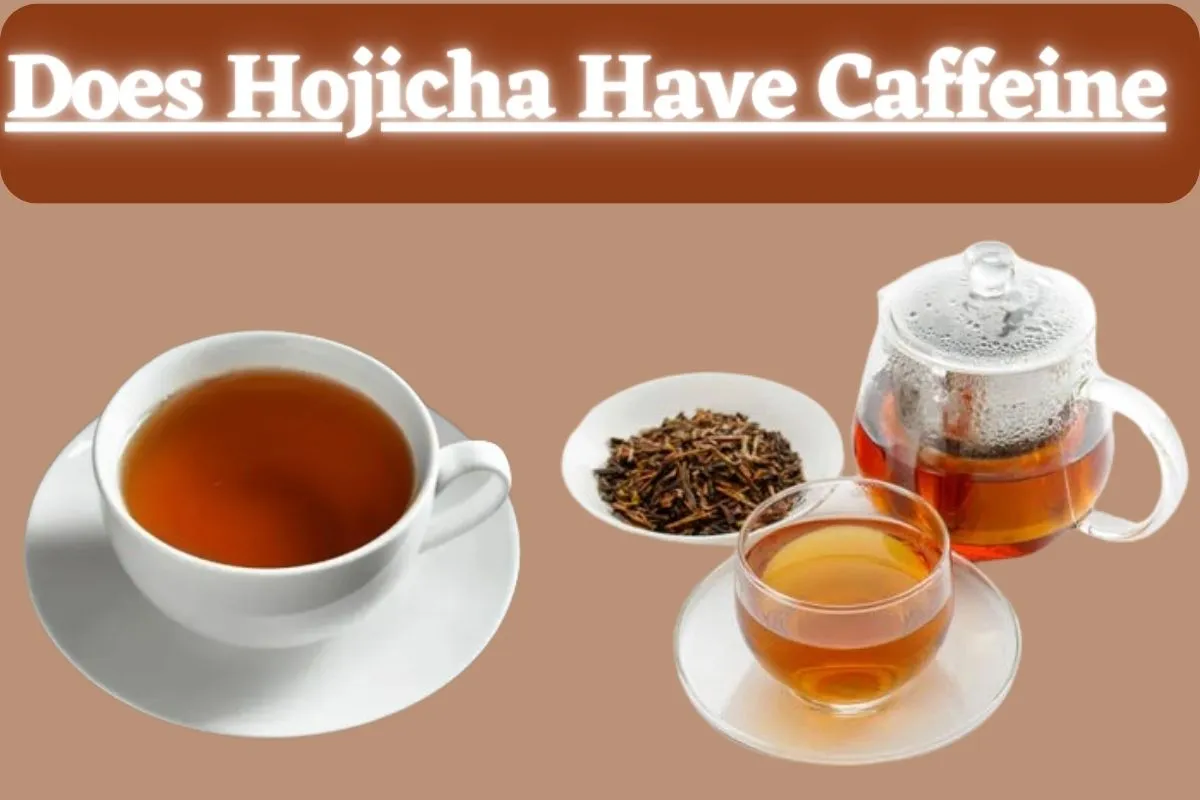Unlike many teas, Hojicha’s origins lie in practicality rather than a quest for a new flavor profile. In 1920s Kyoto, resourceful tea merchants roasted leftover tea leaves and stem to reduce waste, unintentionally creating the now internationally enjoyed Hojicha.
This roasted green tea offers a distinctive, comforting flavor, but how does its caffeine content compare to other teas? Let’s investigate Does Hojicha Have Caffeine?
Importance of Knowing Caffeine Content in Hojicha
Hojicha is a Japanese roasted green tea with a unique toasty and subtly sweet flavor profile. Unlike other green teas, it boasts a warm, reddish-brown hue. Hojicha’s origins lie in the resourcefulness of Kyoto tea merchants in the 1920s. Looking to utilize leftover tea leaves and stems, they experimented with roasting, unintentionally creating this beloved beverage.
One of Hojicha’s key benefits is its significantly reduced caffeine content compared to traditional green teas. The roasting process lowers the caffeine levels significantly, making Hojicha a relaxing choice even in the evenings.
Individuals who are highly sensitive to caffeine, pregnant or breastfeeding women, and those with certain medical conditions should generally exercise caution with Hojicha consumption.
Consulting a healthcare professional for personalized advice is always recommended. Despite this consideration, Hojicha remains a delicious and naturally low-caffeine alternative for tea lovers who want to enjoy a warm, comforting beverage without the stimulating effects of higher-caffeine teas.
Does Hojicha Have Caffeine?
No, While Hojicha isn’t entirely caffeine-free, it boasts a significantly reduced caffeine content compared to most teas.
The key factor in Hojicha’s low caffeine is its unique roasting process. Exposing the tea leaves to high heat partially breaks down the caffeine molecules, resulting in a less stimulating beverage.
Moreover, Hojicha is often made from more mature tea leaves, such as bancha or stems and twigs (kukicha). These parts of the tea plant naturally contain less caffeine than the young, tender leaves used in traditional green teas.
To put things into perspective, a standard cup of coffee packs around 95 mg of caffeine. Green tea typically contains between 25-40 mg, while a cup (250 ml) of Hojicha offers a mere 8 mg approximately.
While Hojicha is a fantastic low-caffeine option, it’s crucial to remember that trace amounts of caffeine are still present. If you have high caffeine sensitivity, it’s best to monitor your consumption or consult a healthcare professional for advice.
Hojicha Variants and their Caffeine Content
Hojicha, known for its roasted aroma and mellow flavor, offers some interesting variations beyond the classic type. Here’s a breakdown of some hojicha variants you might encounter:
Roasted Hojicha:
This is the most common type of Hojicha, made from roasted bancha (coarse tea leaves) or sometimes sencha (higher quality tea leaves). The leaves are roasted at high temperatures, which imparts a toasty, nutty flavor to the tea. Roasted Hojicha typically has a reddish-brown color and a mild, slightly sweet taste.
Kuki Hojicha:
Kuki Hojicha is made from the stems (kuki) of the tea plant rather than the leaves. The stems are roasted in a similar manner to regular Hojicha, resulting in a tea with a slightly lighter flavor and aroma. Kuki Hojicha often has a smoother taste and a subtle sweetness.
Kamairi Hojicha:
Kamairi Hojicha is a variation of Hojicha where the tea leaves are pan-fired (kamairi) instead of being steamed like most Japanese green teas. This method produces a tea with a unique roasted flavor that is less grassy and vegetal compared to traditional green teas. Kamairi Hojicha can vary in flavor depending on factors such as the roasting time and temperature.
Genmaicha Hojicha:
This blend combines Hojicha with toasted brown rice, creating a nutty and slightly savory flavor profile. The roasted notes of the Hojicha complement the toasty flavors of the rice, resulting in a rich and satisfying brew.
Matcha Hojicha:
Matcha Hojicha combines powdered matcha green tea with roasted Hojicha leaves. This blend offers the best of both worlds, with the earthy richness of matcha complementing the toasty aroma of Hojicha. It’s a flavorful and energizing tea with a unique balance of flavors.
Blended Hojicha:
Some tea producers create blends by combining Hojicha with other ingredients such as roasted barley, roasted corn, or roasted soybeans. These blends can offer additional layers of flavor and texture, adding complexity to the Hojicha base.
Aged Hojicha:
Similar to aged pu-erh tea, Hojicha can also be aged to develop deeper flavors and aromas. Aged Hojicha undergoes a gradual oxidation process over time, resulting in a smoother and more mellow taste. The aging process can vary in length, with some teas aged for just a few months to others aged for several years.
Flavored Hojicha:
Some tea producers infuse Hojicha with additional flavors such as vanilla, caramel, or roasted chestnut. These flavored Hojicha teas offer a unique twist on the traditional roasted flavor, appealing to those who enjoy sweeter or more aromatic brews.
List of Ingredients in Hojicha
The ingredients in Hojicha typically include:
- Green Tea Leaves: Hojicha is primarily made from green tea leaves, specifically those of the Camellia sinensis plant. These leaves undergo a unique roasting process to create the distinctive flavor and aroma characteristic of Hojicha.
- Water: Water is used to brew the Hojicha tea leaves, extracting their flavor and nutrients during the steeping process.
Hojicha Nutritional Information

A 7.5oz serving of Hojicha Roasted Green Milk Tea, like one from Twrl Milk Tea, contains approximately 45 calories. It has 2g of total fat (3% of your daily value), including 2g of saturated fat (10% DV). You won’t find any trans fat or cholesterol in this beverage.
It provides 85mg of sodium (4% DV), 8g of total carbohydrates (3% DV), 7g of sugars (including added sugars – 14% DV), and 1.5g of protein. Regarding vitamins and minerals, it doesn’t offer any significant amounts of Vitamin D, Calcium, or Iron, but it does have a small amount of Potassium (40mg, or 1% DV).
| Nutrient | Amount Per Serving |
| Serving Size | 7.5 oz |
| Calories | 45 |
| Total Fat | 2g (3% DV) |
| Saturated Fat | 2g (10% DV) |
| Trans Fat | 0g |
| Cholesterol | 0mg (0% DV) |
| Sodium | 85mg (4% DV) |
| Total Carbohydrates | 8g (3% DV) |
| Dietary Fiber | 0g (0% DV) |
| Sugars(Includes Added Sugars) | 7g (14% DV) |
| Protein | 1.5g |
| Vitamin D | 0mcg (0% DV) |
| Calcium | 0mg (0% DV) |
| Iron | 0mg (0% DV) |
| Potassium | 40mg (1% DV) |
Alternatives to Hojicha and their Caffeine Content
There are several alternatives to Hojicha for individuals looking for different flavors or caffeine-free options. Some popular alternatives include:
Rooibos:
This South African “red bush” tea is a caffeine-free wonder with a naturally sweet, subtly earthy, and vanilla-like flavor. Rooibos is known for its soothing properties and is an excellent choice for a relaxing evening beverage.
Chamomile:
A classic choice for relaxation, chamomile boasts a gentle floral, honey-like flavor and has been used for centuries to promote calmness. This naturally caffeine-free herbal tea is perfect for winding down before bed.
Peppermint:
Refreshing and invigorating, peppermint tea delivers a cool, minty sensation and is naturally caffeine-free. It’s renowned for aiding digestion and can offer a boost of energy without the buzz of caffeine.
Ginger:
Spicy and warming, ginger tea is traditionally made from fresh ginger root and delivers a host of potential health benefits. Naturally caffeine-free, it’s ideal for a comforting and invigorating drink any time of day.
Roasted Barley Tea (Mugicha):
A popular Korean beverage, Mugicha is made from roasted barley grains and delivers a nutty, toasty flavor similar to Hojicha. It’s naturally caffeine-free and known for its refreshing qualities, making it a popular choice during warmer months.
White Tea:
Made from young, minimally processed tea leaves, white tea offers a delicate and subtly sweet flavor profile. Most white teas contain less caffeine than standard green teas, offering a gentle energy boost.
Yerba Mate (Roasted):
Hailing from South America, yerba mate boasts a unique vegetal and earthy flavor. Roasted varieties offer a mellower taste and lower caffeine content compared to traditional bright green yerba mate.
Oolong Tea (Lightly Oxidized):
Oolong tea’s oxidation level significantly influences its flavor and caffeine content. Lightly oxidized oolongs offer delicate floral and fruity notes with a lower caffeine kick than darker, more oxidized options.
Genmaicha:
This Japanese blend combines green tea with roasted rice kernels, resulting in toasty, nutty flavor notes. The roasted rice mellows the flavor and reduces the overall caffeine content compared to pure green tea.
Chicory Root:
A naturally caffeine-free alternative with a flavor profile somewhat reminiscent of coffee. Chicory root is roasted and imparts a slightly bitter, earthy flavor that some find a satisfying caffeine-free coffee substitute.
| Tea | Caffeine Content |
| Rooibos | Caffeine-free |
| Chamomile | Caffeine-free |
| Peppermint | Caffeine-free |
| Ginger | Caffeine-free |
| Roasted Barley Tea (Mugicha) | Caffeine-free |
| White Tea | Low caffeine content |
| Yerba Mate (Roasted) | Moderate caffeine content |
| Oolong Tea (Lightly Oxidized) | Moderate caffeine content |
| Genmaicha | Low caffeine content |
| Chicory Root | Caffeine-free |
Recommended Daily Intake of Hojicha
Does Hojicha Have Caffeine? Yes, Hojicha has a very low caffeine content, containing roughly 3-10 mg per 240 ml (8 fl oz) cup. Considering the FDA’s recommended daily intake (RDI) of 400 mg of caffeine for healthy adults, a single cup of Hojicha represents a mere 0.75% to 2.5% of this limit.
This means that even those sensitive to caffeine could enjoy multiple cups of Hojicha throughout the day and still likely stay comfortably within recommended guidelines. Keep in mind that longer steeping times can increase the caffeine content slightly, and individual sensitivity to caffeine always plays a role.
Conclusion
Yes, Hojicha contains trace amounts of caffeine, but it boasts significantly lower levels than traditional teas and coffee. This makes Hojicha a suitable choice for individuals seeking a flavorful and comforting warm beverage while minimizing caffeine intake. Whether enjoyed as a relaxing evening alternative or simply as a less stimulating option, Hojicha provides a unique and satisfying tea experience.
Frequently Asked Questions
Q1. What does hojicha taste like?
Hojicha delivers a unique roasted flavor profile with toasty, nutty, and sometimes even slightly caramel-like notes. There’s a subtle sweetness, and it lacks the grassy or vegetal flavors often found in traditional green teas. Its overall taste is mellow and comforting.
Q2. What is the difference between matcha and hojicha?
Matcha and Hojicha are both made from Japanese green tea, but they differ significantly. Matcha is a finely ground powder made from young, shaded tea leaves, resulting in a bright green color and a grassy, umami flavor. Hojicha is made from roasted leaves (often mature leaves and stems), leading to a reddish-brown color and a mellow, toasted flavor profile.
Q3. Is hojicha good or bad?
Hojicha boasts several potential benefits. Its low caffeine content is excellent for those sensitive to caffeine. The roasting process might also increase certain antioxidants. However, like most beverages, moderation is key. Those with specific health concerns should always consult with a healthcare professional.
Q4. Can I drink hojicha every day?
Yes, for most people, drinking Hojicha every day is perfectly fine. Its low caffeine content means you can likely have several cups without exceeding recommended caffeine limits. However, if you have extreme caffeine sensitivity or any health concerns, it’s always a good idea to check with a healthcare professional.
Q5. Is it OK to drink hojicha at night?
Absolutely! Hojicha’s naturally low caffeine makes it a great choice for a relaxing evening beverage. Its warm and comforting flavor can help you unwind before bed without the stimulating effects of higher-caffeine drinks.

Rossi Glover, the passionate Owner of Grand Lake Coffee, infuses every cup with her love for coffee and dedication to quality. With an extensive background in the art and science of coffee, Rossi is not just a connoisseur but a storyteller, sharing the intricate tales behind each brew.

